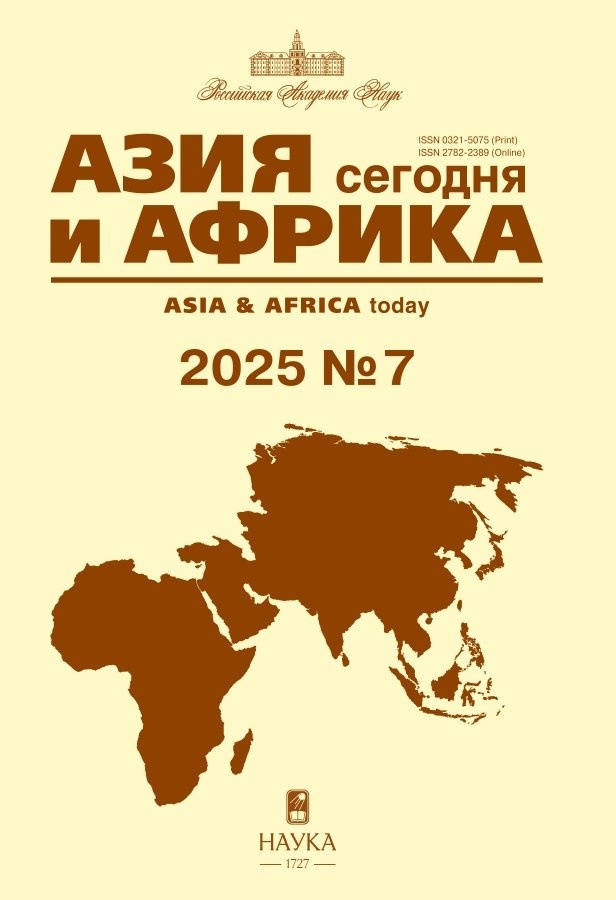The Mythologeme “Japan – Russia – the West” in Kafka Asagiri’s Ranobe “Bungo Stray Dogs”
- Autores: Koroleva V.V1, Pritomskaya A.R1
-
Afiliações:
- The University of Vladimir
- Edição: Nº 7 (2025)
- Páginas: 69-76
- Seção: Culture, literature, art
- URL: https://ta-journal.ru/0321-5075/article/view/686859
- DOI: https://doi.org/10.31857/S0321507525070091
- ID: 686859
Citar
Resumo
The article uses the mythopoetics (considering culture as a text) to explore the specifics of the mythologeme “Japan – Russia – the West” implementation in Kafka Asagiri's Ranobe cycle “Bungo Stray Dogs”. It is argued that this mythologeme is created through the method of mythologizing cultural historical names (names of Japanese, European and Russian authors) and reflects the ideas of the modern Japanese nation about Russia and Europe, as well as about its own state and culture in the context of the historical process. It is concluded that the peculiarities of the mythologization in the considered Ranobe indicate the radicalization of civil-patriotic sentiments in Japan in the face of violent processes of europeanization and globalization in the modern world and reflect the current state of national thought in Japan, namely, an attempt at self-determination and self-identification in relation to the culture and principles of world hegemony, of Russia and the West. The specific pop-cultural archetypes and cliches that define the behavior of characters in the novellas contribute to the effective dissemination of these ideas to a young audience influenced by ideological opponents of modern Japan through New Media.
Sobre autores
V. Koroleva
The University of Vladimir
Email: queenvera@yandex.ru
Dr.Sc. (Philology), Head, Department of the Second Foreign Language and Methods of Teaching Foreign Languages, Vladimir State University named after Alexander and Nikolay Stoletovs Vladimir, Russia
A. Pritomskaya
The University of Vladimir
Email: gera.greenhill@gmail.com
Assistant, Department of the Second Foreign Language and Methods of Teaching Foreign Languages, Vladimir State University named after Alexander and Nikolay Stoletovs Vladimir, Russia
Bibliografia
- Miller S.J. Historical Dictionary of Modern Japanese Literature and Theater. United Kingdom: Scarecrow Press, 2009. 234 p.
- Gabrielyan O.A. 2018. Mythopoetics of Culture: towards a possible research methodology. Scientific notes of the V.I. Vernadsky Crimean Federal University Philosophy. Political science. Cultural studies. Iss. 70 (3). (In Russ.). https://cyberleninka.ru/article/n/mifopoetika-kultury-k-vozmozhnoy-metodologii-issledovaniya (accessed 10.07.2024)
- Gabrielyan O.A. 2019. Mythopoetics of ideology. Scientific notes of the V.I. Vernadsky Crimean Federal University Philosophy. Political science. Cultural studies. Iss. 71 (1). (In Russ.). https://cyberleninka.ru/article/n/mifopoetikaideologii (accessed 10.07.2024)
- Kozitskaya E.A. The archetype of “water” in the work of A.A.Akhmatova. (In Russ.). http://ahmatova.niv.ru/ahmatova/kritika/kozickaya-mifologema-vody-v-tvorchestve-ahmatovoj.htm (accessed 02.07.2024)
- Lotman Yu.M. 1971. Works on sign systems. Bulletin of the Tartu University. 549 p. (In Russ.)
- Lotman Yu.M. and the Tartu-Moscow Semiotic school. Moscow, 1994. 563 p. (In Russ.)
- Varlamova V.N. 2016. Linguistic features of the mythologeme in a literary text. Questions of teaching methods at the university. № 5 (19–2). (In Russ.). https://cyberleninka.ru/article/n/lingvisticheskie-osobennosti-mifologemy-vhudozhestvennom-tekste (accessed 03.01.2024)
- Kozhevnikov V.V. 2005. Russian-Japanese relations in the 21st Century: what will they be like? Vestnik DVO RAN. № 4 . (In Russ.). https://cyberleninka.ru/article/n/rossiysko-yaponskie-otnosheniya-v-hhi-v-kakimi-oni-budut-subektivnye-razmyshleniya-istorika (accessed 05.07.2024)
- Okakura K. The ideals of the East, with special reference to the art of Japan. United Kingdom: John Murray, 1903. 244 p.
- Skvortsova E.L. 2012. Japan: the crisis of cultural identity at the meeting with Western civilization. Voprosy Filiosofii. № 7. Pp. 52–64. (In Russ.)
Arquivos suplementares









